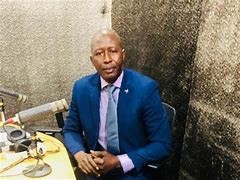As President Joe Boakai Remains Tightlipped About The Growing Controversy
PHOTO: Archie Sarnor, former representative candidate District # 16, Montserrado County
By Augustine Octavius, augustineoctavius@gmail.com
Calls are mounting on the Unity Party (UP) government of President Joseph Boakai for the lifting of the Executive Order his predecessor, former President George Weah issued in the final weeks of his government in 2023 to ban the export of raw natural rubber.
Rubber is one of Liberia’s biggest exports.
While the rubber producers in the sector remain divided, with some supporting the moratorium, there are others who claim that the ban on the exportation of unprocessed rubber will hurt local farmers the most.
A former legislative candidate in District # 16 Montserrado County and a vocal political activist, Archie Sarnor has joined the chorus of those appealing to Liberia’s 26th President Boakai to lift the ban imposed on the exportation of raw rubber.
Just before leaving office, former President Weah has issued Executive Order # 124 banning the exportation of unprocessed natural rubber.
The Executive Order, issued by former Weah, states that the rubber sector of Liberia ‘has been greatly affected by abuse, misuse, and theft over the period’.
Mr. Sarnor said that the ban on the exportation of raw rubber was imposed so as to benefit few elites and subject the middle class to object poverty in the country.
He claimed that the ban on the exportation of raw rubber is only affecting the Liberian business people and to putting them out of business.
According to records, prior to the imposition of the ban on exportation of natural rubber, Liberia’s exports of natural rubber were valued at 112.7 million United States Dollars annually with the bulk of the exportation done by the Firestone Rubber Plantation, the Liberia Agricultural Company, the Jeety Rubber factory and the Lee Group.
According to reports, only a hand-full of Liberian businesses are said to be engaged in the exportation of processed, rubber as the machines for processing natural rubber are cash intensive.
On February 28, 2024, the Rubber Planters Association of Liberia (RPAL) expressed support for the Liberian government saying that the action is in no error in banning the export of unprocessed rubber.
The group, which is a major rubber sector actor has unanimously declared its support of the ban, adding that exporting unprocessed rubber out of Liberia denies the government of generating needful taxes and takes jobs away from local employees.
According to Mr. Sarnor, the ban on the exportation of raw rubber is making negative impact on the Liberian economy depriving the middle class of business and increasing the exchange rate between the Liberian Dollars and the United States Dollars.
The political activist, who many years ago broke ranks with Weah’s CDC party, claimed that some opposition politicians are conniving with some of the companies given the rights to export process rubber in order to secure funding for future elections against the Unity Party.
But Mr. Sarnor’s claims could not be independently verified as most of these companies did not respond to allegations of partnering with some politicians in or out of government.
The new President Joseph Boakai, who campaigned on boosting the agricultural sector during the 2023nelections, has not made any official comment on the growing controversy over Weah’s Executive Order #124.

